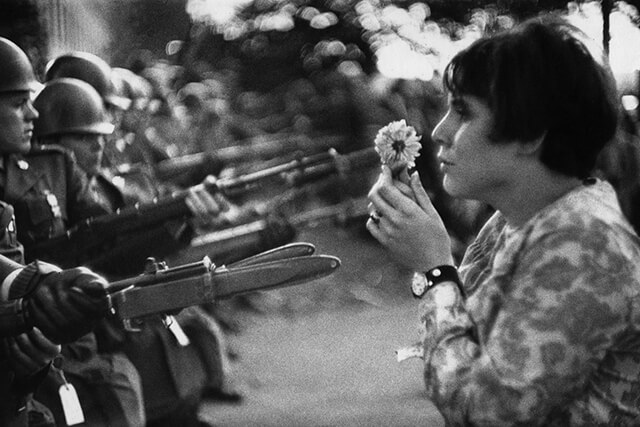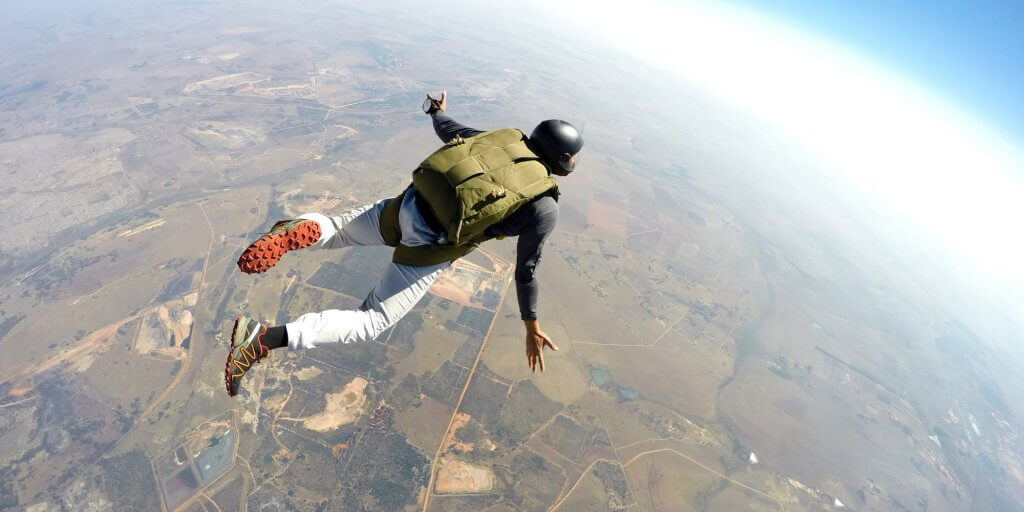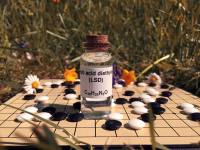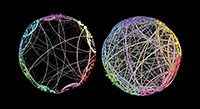
Can psychedelics change political perspective?
Lisa Evans
In three weeks, the UK will go to the polls again. Out of habit, many will check the box corresponding to the party whose platform is most familiar to them. Maybe they will feel confident about this party’s political views, and not think it necessary, or even a possibility, to entertain a different perspective. Would these people oblige if they were asked to participate in an experiment to see if their political views would change?
For many people, especially those yet to discover the new wave of psychedelic research, psychedelics remain largely associated with the liberal-minded flower children of the 60s.

However, it seems that an important part of the new psychedelic conversation, stimulated by an increase in recreational use1 and scientific data, is about the particular quality of consciousness that psychedelics bring about. This state of consciousness can be described as more flexible and malleable than normal waking consciousness, and is associated with an increase in the diversity of electrical signals2 and connectivity3 throughout the brain. Importantly, these changes in brain activity may underlie psychedelics’ capacity to free people from chronically depressive, anxious, and addicted states of mind.
These neural changes could also underlie reported changes in political perspective after psychedelic experiences; however, a brain imaging study asking this question has yet to be conducted. Despite hippies’ identification with the political left and countless reports of radical changes in worldview brought on by psychedelic trips, researchers have yet to address the relationship between the use of psychedelics and political perspective. Do more liberal people take psychedelics, or does the profound, consciousness-altering, often “mystical” experiences encountered in the psychedelic state somehow lead to greater liberalism?

We might expect that liberalism, having been associated with an openness to new experiences4, would increase the tendency for people to seek out at least one psychedelic experience in their lifetime. However, psychedelics—in their proven capacity to make people more open5—could also actively tip people to the left end of the political scale. Finding scientific support for such a claim would have weighty implications that for many—particularly those in political power—might perceive as threatening, arguing that such a tool could be used for “mind-control”, as was attempted as part of MKULTRA in the 1960s. It is unlikely that democracy would retain its current form if the apothecary stocked a pill to encourage a liberal worldview.
While there is no extant data about a causal relationship between psychedelics and political perspective, a new study published in the Journal of Psychoactive Drugs6, found that more psychedelic use throughout one’s lifetime is linked to less authoritarian and more liberal political views. The researchers, including Robin Carhart-Harris from the Beckley/Imperial Research Programme, collected and analysed almost 900 responses to an online survey in which they asked participants questions about their personality, political orientation, relationship to nature, and the extent of their experience with psychedelics—including whether they had experienced “ego-dissolution” during these experiences.
The results from the analysis indeed lent support to the intuition that there is a connection between psychedelic use and political perspective. People who reported having had more psychedelic experiences turned out to be more open and liberal. They also scored higher on the so-called “nature-relatedness” scale, which attempts to measure the importance of nature in a person’s life.

A link was also found between greater experiences of ego-dissolution during what people reported as their most ‘intense’ psychedelic experience and their openness, liberalism, and nature-relatedness. Ego-dissolution is a feeling of unity, a sense that your normal self is less distinct from the environment, others around you, and perhaps even the universe. It might be argued that dissolving the ego is the process by which people achieve mystical experiences. This idea is quite taboo in mainstream, secular culture, but it is something that many psychedelics users report, and that has been experimentally measured, especially at higher doses.
While these data do not enable a causal conclusion to be drawn, psychedelic-occasioned ego-dissolution seems to play an important role in facilitating personal change. Recent experimental studies with psilocybin5 and LSD7 report that increases in openness following psychedelic use are related to the degree of experiencing ego-dissolution or mystical experience. This provides important evidence supporting psychedelics’ ability to alter rigid ways of thinking about the world. Even if a single psychedelic experience does not change a person’s political orientation or personality for good, at the very least it may provide them with a rare opportunity to see the world from a novel perspective, a skill that is arguably at the root of empathy, learning, and collaborative decision-making.
Despite limitations to the survey, such as its reliance on retrospective reports—which were unverified and may include inaccuracies—and the participation by a relatively narrow subset of the population mostly comprised of those identifying as male and liberal, this study gives us important first evidence of a connection between the use of psychedelics and political perspective. More importantly, it paves the way for future controlled studies in which political orientation will be compared before and after subjects are administered a psychedelic in a supportive environment.

Words: Lisa Evans
1. Gry, J., Andersson, C. & Kristinsson, J. Occurrence and use of hallucinogenic mushrooms containing psilocybin alkaloids. (Nordic Council of Ministers, 2009). doi:10.6027/tn2008-606
2. Schartner, M. M., Carhart-Harris, R. L., Barrett, A. B., Seth, A. K. & Muthukumaraswamy, S. D. Increased spontaneous MEG signal diversity for psychoactive doses of ketamine, LSD and psilocybin. Sci. Rep. 7, 46421 (2017).
3. Carhart-Harris, R. L. et al. Neural correlates of the LSD experience revealed by multimodal neuroimaging. Proc. Natl. Acad. Sci. 113, 4853–4858 (2016).
4. McCrae, R. R. Social consequences of experiential openness. Psychol. Bull. 120, 323–37 (1996).
5. MacLean, K. A., Johnson, M. W. & Griffiths, R. R. Mystical experiences occasioned by the hallucinogen psilocybin lead to increases in the personality domain of openness. J. Psychopharmacol. 25, 1453–61 (2011).
6. Nour, M. M., Evans, L. & Carhart-Harris, R. L. Psychedelics, Personality and Political Perspectives. J. Psychoactive Drugs 1–10 (2017). doi:10.1080/02791072.2017.1312643
Podcast
- All
Links
- All
Support
- All
BIPRP
- All
Science Talk
- All
Amanda's Talks
- All
- Video Talk
- Featured
- 2016 Onwards
- 2011-2015
- 2010 and Earlier
- Science Talk
- Policy Talk
One-pager
- All
Music
- All
Amanda Feilding
- All
Events
- All
Highlights
- All
Psilocybin for Depression
- All
Current
- All
Category
- All
- Science
- Policy
- Culture
Substance/Method
- All
- Opiates
- Novel Psychoactive Substances
- Meditation
- Trepanation
- LSD
- Psilocybin
- Cannabis/cannabinoids
- Ayahuasca/DMT
- Coca/Cocaine
- MDMA
Collaboration
- All
- Beckley/Brazil Research Programme
- Beckley/Maastricht Research Programme
- Exeter University
- ICEERS
- Beckley/Sant Pau Research Programme
- University College London
- New York University
- Cardiff University
- Madrid Computense University
- Ethnobotanicals Research Programme
- Freiburg University
- Medical Office for Psychiatry and Psychotherapy, Solothurn
- Beckley/Sechenov Institute Research programme
- Hannover Medical School
- Beckley/Imperial Research Programme
- King's College London
- Johns Hopkins University
Clinical Application
- All
- Depression
- Addictions
- Anxiety
- Psychosis
- PTSD
- Cancer
- Cluster Headaches
Policy Focus
- All
- Policy Reports
- Advisory Work
- Seminar Series
- Advocacy/Campaigns
Type of publication
- All
- Original research
- Report
- Review
- Opinion/Correspondence
- Book
- Book chapter
- Conference abstract
- Petition/campaign
Search type

